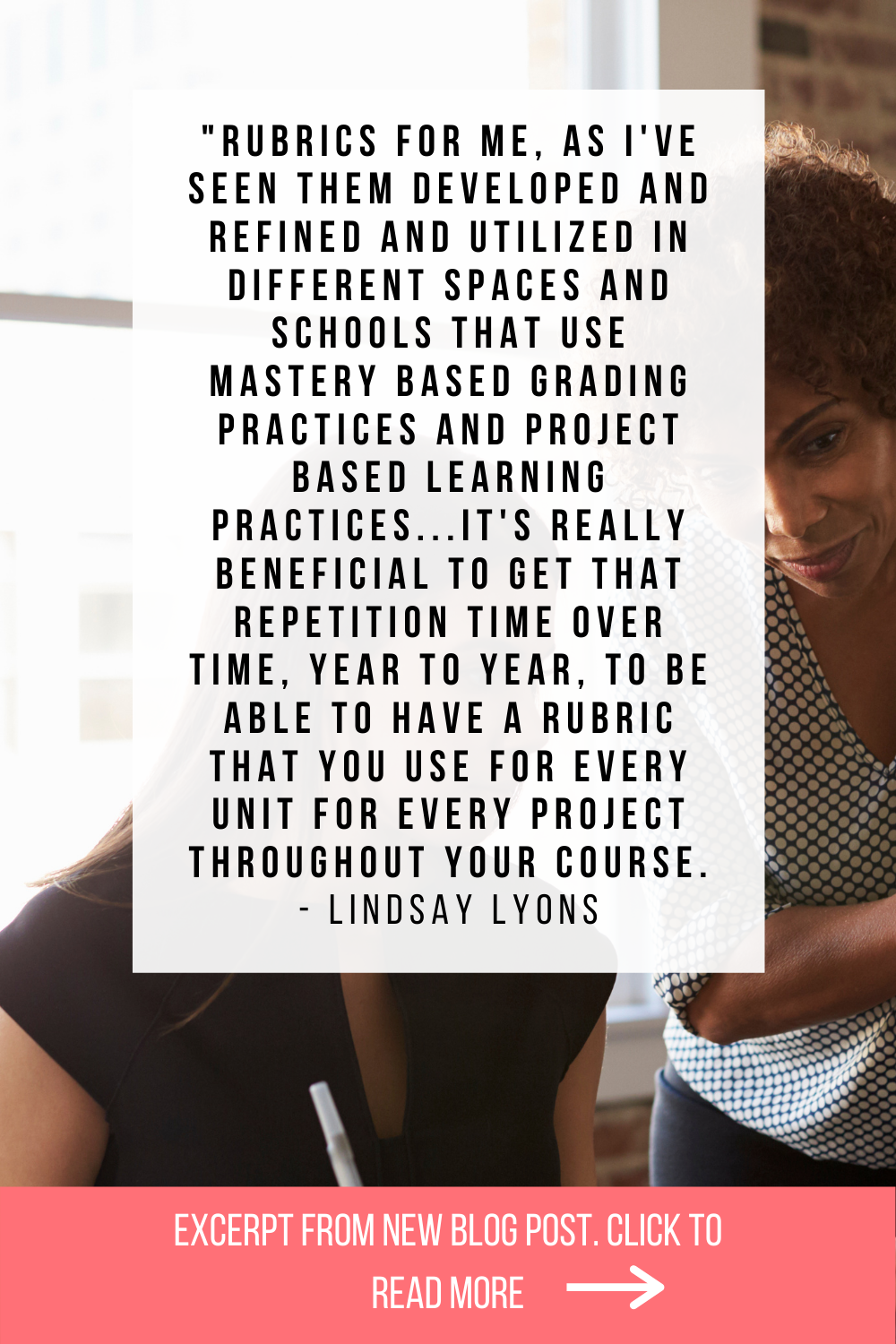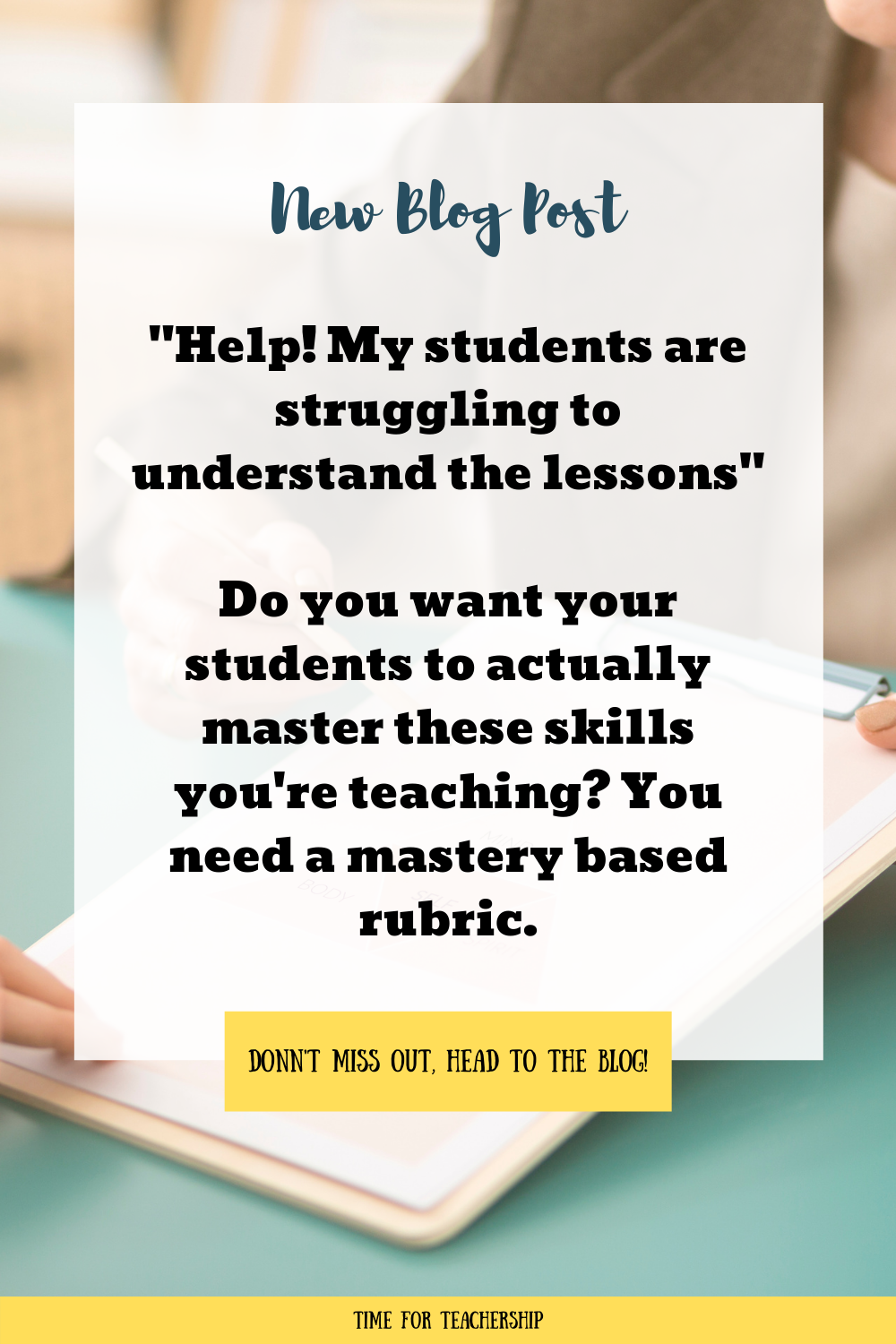|
Listen to the episode using the above player or by clicking the link to your preferred podcast platform below: One of the foundational elements of backwards planning justice-centered units with flexibility and multiple opportunities to practice skills is a course-long rubric. Getting clear on where we're going helps us as educators, and that clarity helps our students. Using one rubric for all course projects In last week’s post, I touched on project based units, curriculum design, equity, and mastery based grading which helps students deeply understand content and repeatedly practice and refine key skills by addressing one driving question throughout a unit. We cannot design application projects or create lesson-level activities for students to practice the key skills if we don't know what the key skills are. That's why a course-long rubric is step one. “Work within your department or the grade you teach to be able to co-create a rubric that has the same priority standards so that students moving class to class or grade to grade, year to year, they see the same language... and they get further opportunities to be able to practice and refine those skills.” Co-creating this rubric with fellow teachers who teach the same content or grade level will result in a better rubric that's aligned from year to year and class to class. It also saves the student the trouble of having to read through and learn new rubrics. Now, there are two ways you can make a rubric for mastery. One is called a single point rubric. The three columns are: Approaching standards, Outcome, and Above Standards. In the middle column, you will list all of your outcomes. So name the skill and under it explain what being proficient in that skill would mean. The other two columns are for you and a student to write your own notes. If a student is not quite at the standard, you will describe why in “Approaching Standards” and if they have gone above those standards you write how they exceed the standards in the “Above Standards” column The second option is a three or four point rubric with 3 or 4 vertical columns and horizontal rows for the priority skills. The difference is that you define each category of mastery on this rubric (e.g., below standards, meets standard, and above standard). Best practices:
I think you’ll find it useful to hear about the skills-based rubrics that the New York Performance Standards Consortium has developed. Many schools have adopted these standards and it’s great to see these collaborations between departments in different schools. Their four point rubric is based on these core subjects: ELA, Social Studies, Science, Math, and Engineering/Design Science. The priority skills listed for ELA are organization, analysis & interpretation, style & voice, connections, conventions (written) or presentation (verbal). Social Studies is viewpoint: thesis & claim, evidence & sources, analysis & persuasion, effective organization, understanding of implication & context voice, and a presentation format. For science they have the presentation piece plus contextualize, critique, experimental design, collect/curate/organize/present data, analyze & interpret results, revise original design. Math is problem solving, reasoning & proof, communication, connections, representation. Finally engineering/design science contains problem solving, reasoning & proof, communication, connections, representation and a presentation format. Rubric design is critical for backwards planning curriculum, and it doesn't have to take forever! Take a look at my rubric templates below to see the templates we discussed today. For more, check out my Curriculum Boot Camp course or the “Just the Protocols” module to create your own project-based units grounded in justice in no time at all! Until next time leaders, continue to think big, act brave, and be your best self.
0 Comments
Leave a Reply. |
Details
For transcripts of episodes (and the option to search for terms in transcripts), click here!
Time for Teachership is now a proud member of the...AuthorLindsay Lyons (she/her) is an educational justice coach who works with teachers and school leaders to inspire educational innovation for racial and gender justice, design curricula grounded in student voice, and build capacity for shared leadership. Lindsay taught in NYC public schools, holds a PhD in Leadership and Change, and is the founder of the educational blog and podcast, Time for Teachership. Archives
May 2024
Categories |




 RSS Feed
RSS Feed